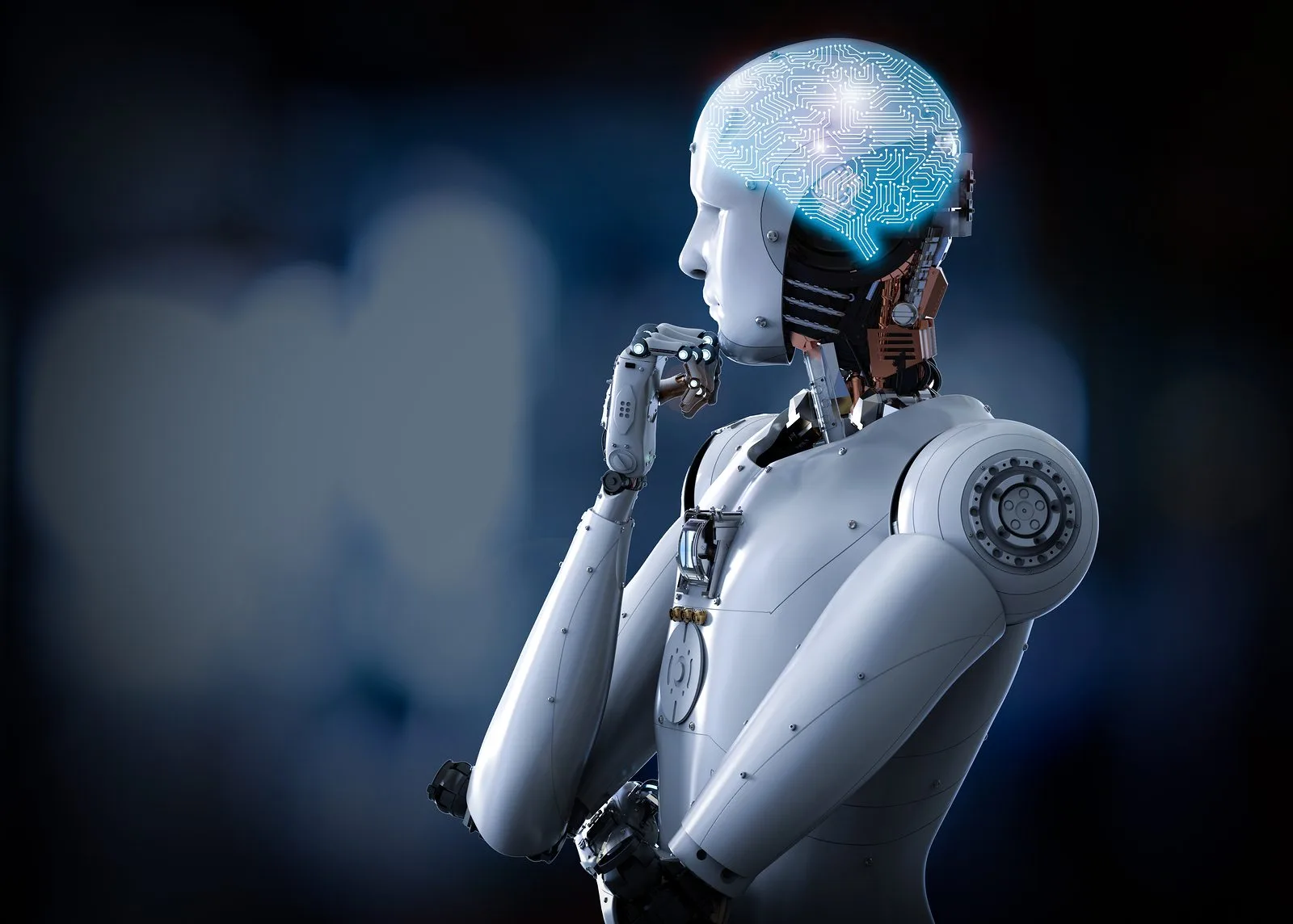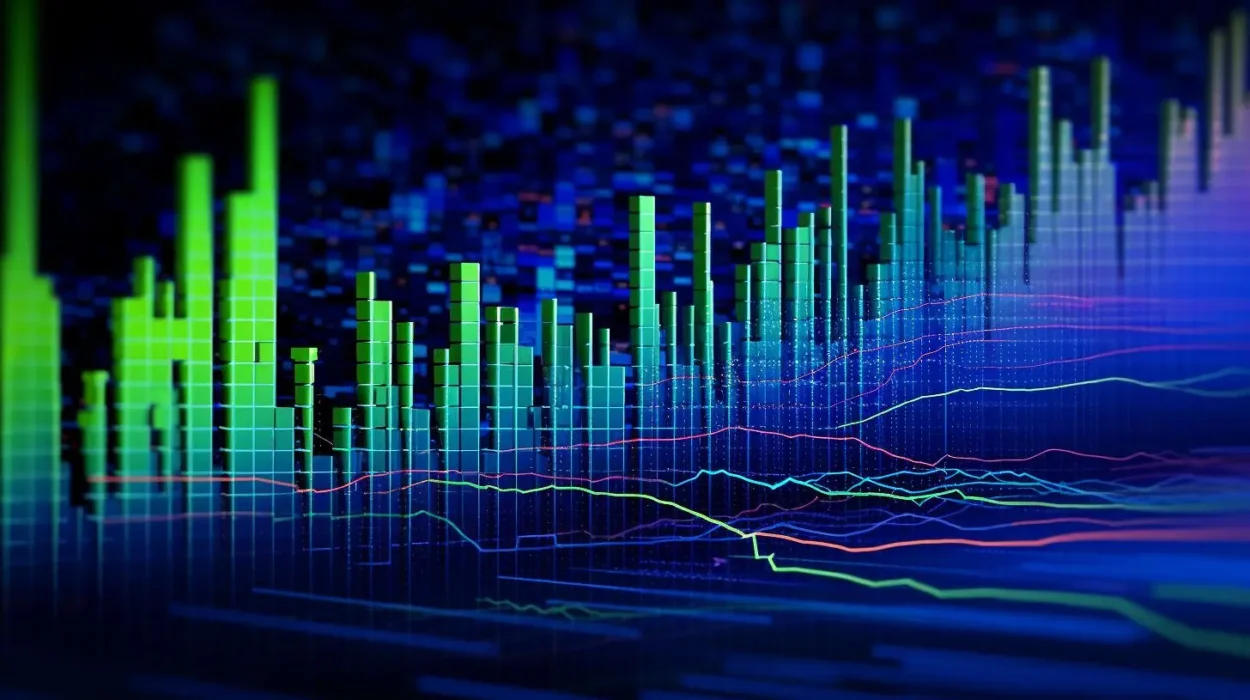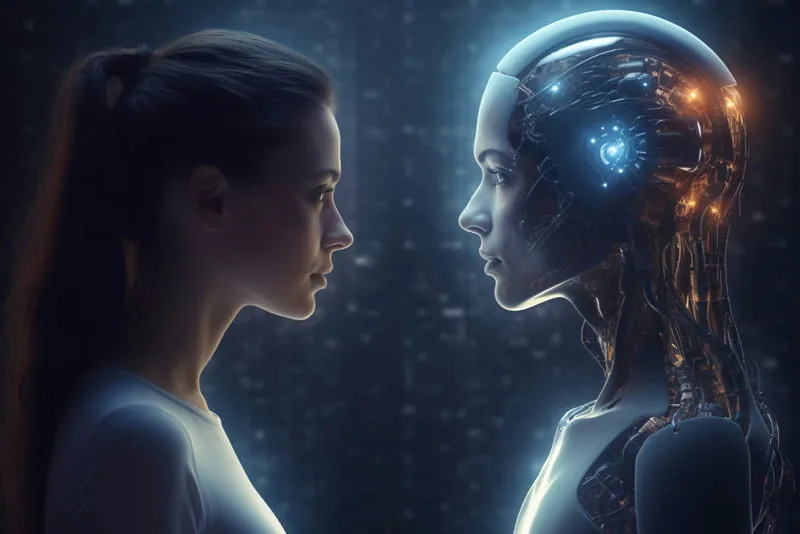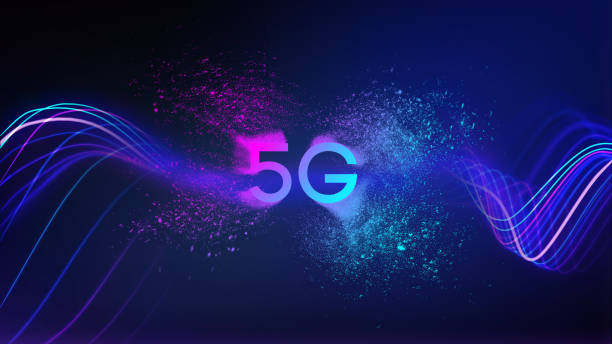Throughout history, humanity has always feared what it does not fully understand. From the fire that once frightened early humans to the steam engines that reshaped entire societies, every leap in technology has inspired both awe and dread. Today, a new kind of fire is being kindled—one not fueled by coal or oil, but by data, algorithms, and computation. Artificial Intelligence is no longer a speculative concept; it is woven into our lives, threading itself silently through our conversations, choices, and even dreams. But as this technology rises, so too does an ancient question dressed in digital clothes: will this creation serve us, or will it enslave us?
AI is not merely software—it is the automation of thought. It can translate languages, detect disease, write poetry, create fake voices, and even manipulate emotions. It learns from us, adapts, predicts, and acts. And as it grows smarter and more autonomous, many wonder whether it will begin to reshape the very freedoms we once took for granted. What does it mean to be free when a machine knows your next move better than you do?
Defining Freedom in an Age of Algorithms
To understand whether AI is a threat to human freedom, we must first define what freedom means in the context of the 21st century. Freedom is more than just the absence of chains. It is the ability to choose, to act according to one’s will, to express one’s thoughts without fear, and to explore the full potential of one’s humanity. Freedom is also the capacity to be unpredictable, to grow from our mistakes, and to resist external control.
AI, by design, seeks patterns. It thrives on predictability. It learns from human behavior and uses that data to forecast what comes next. But when a system becomes so powerful that it begins to influence your decisions before you’ve even made them—suggesting who you should date, what you should buy, how you should think—freedom becomes murky. Is a choice truly yours if it was shaped by an invisible algorithm that knows what you want before you do?
Surveillance and the Silent Erosion of Autonomy
Perhaps the most direct threat AI poses to freedom lies in surveillance. From facial recognition to predictive policing, AI is enabling governments and corporations to watch citizens in ways that were once the domain of dystopian fiction. In China, AI-powered surveillance tracks millions of people every day, evaluating their behavior and assigning social credit scores. In the United States and Europe, smart cameras and AI-based analytics are increasingly deployed in public spaces, retail stores, and even schools.
The danger here is not just privacy invasion—it is control. When people know they are being watched, they begin to self-censor. They conform, behave “correctly,” and become more predictable. Surveillance alters behavior, often subtly but profoundly. The freedom to dissent, to experiment, to express oneself fully, is stifled when AI systems monitor and judge our every move.
What’s more alarming is that many of these systems operate without transparency. They are black boxes—unaccountable and inscrutable. Who decides what counts as suspicious behavior? Who programs the AI to determine who gets flagged and who gets ignored? And what happens when that system is wrong?
Bias Embedded in the Machine
Freedom also demands equality. Yet AI has a history of perpetuating bias. Machine learning models are trained on data, and that data often reflects historical prejudices. If a hiring algorithm is trained on past hiring decisions made by a company that favored men over women, it may continue that bias. If a predictive policing tool is fed data from a justice system that has disproportionately targeted minorities, it may suggest more policing in those same communities.
These biases are not always easy to detect, and their consequences are far-reaching. People are denied jobs, loans, and housing not because of their actual qualifications or behavior, but because an algorithm, trained on flawed data, made a judgment. This is not just a technical flaw—it is a moral one. When decisions about human lives are made by machines that we do not understand, who bears responsibility?
The terrifying irony is that AI often gives a veneer of objectivity. “The algorithm made the decision,” people say, as if that absolves them of accountability. But algorithms are not neutral. They reflect the values, assumptions, and blind spots of their creators. And when these values go unexamined, freedom quietly slips away—not with a bang, but with a shrug.
The Seduction of Convenience
There is another, more subtle threat to freedom posed by AI: comfort. In our pursuit of ease, we are handing over more and more of our autonomy to machines. GPS systems tell us where to go. Recommendation engines tell us what to watch. AI assistants manage our schedules, shop for us, even help raise our children. These conveniences are seductive—but they come at a cost.
Each time we allow AI to make a decision for us, we relinquish a small part of our agency. Individually, these acts seem trivial. Collectively, they form a pattern: a growing dependence on systems that do not need to explain themselves. Over time, we may lose not just the habit of thinking deeply, but the very capacity for it. The mind atrophies when it is no longer challenged. Freedom withers when we cease to exercise it.
There is a name for this process. It is not tyranny in the classical sense—it is what philosopher Aldous Huxley called the “tyranny of pleasure.” We are not being dragged into submission; we are walking willingly into it, comforted by the glow of screens and the illusion of choice.
When AI Becomes the Arbiter of Truth
In the digital age, freedom of thought relies on freedom of information. But AI is now shaping what we see, read, and believe. Algorithms curate news feeds, filter search results, and amplify certain voices while silencing others. Social media platforms, driven by AI, are not neutral conduits of information—they are editors, gatekeepers, and shapers of reality.
This power is not always used maliciously. But it does carry risks. Echo chambers form, misinformation spreads, and public discourse becomes fractured. When AI decides what information is relevant or trustworthy, the line between truth and falsehood becomes blurred. The marketplace of ideas—the cornerstone of a free society—is no longer governed by human debate, but by engagement metrics and click-through rates.
In this environment, propaganda becomes more effective, not less. Deepfakes—AI-generated videos that make people appear to say or do things they never did—threaten to erode our trust in all media. If we cannot believe what we see or hear, how can we make informed choices? And without informed choices, what does freedom even mean?
The Corporate Colonization of Human Behavior
Artificial Intelligence is not simply a tool—it is also a business. And some of the most powerful corporations in human history now control its development. Google, Meta, Amazon, OpenAI, Microsoft, and others are in a race to dominate AI. Their goals are not necessarily aligned with human freedom. Their incentives are profit, data collection, and market control.
These companies are not just selling products; they are shaping behavior. They track your clicks, analyze your preferences, and nudge you toward actions that benefit their bottom lines. They know when you’re likely to buy, what emotions move you, and how to keep you scrolling. This is not conspiracy theory—it is business strategy, openly described in shareholder reports and design documents.
What happens when a handful of corporations control the most powerful tools of influence in human history? What happens when AI systems are used to manipulate voters, consumers, or entire populations? And what happens when these tools become so complex that even their creators no longer fully understand how they work?
Can We Teach Ethics to Machines?
Faced with these questions, many technologists are now grappling with AI ethics. Can we embed moral principles into algorithms? Can we teach machines to respect human values, rights, and dignity? The effort is noble, but it is fraught with difficulty.
Whose values should AI reflect? Western liberalism? Eastern collectivism? Religious doctrines? Secular humanism? Ethics is not a universal code—it is a living conversation, shaped by culture, history, and perspective. Encoding it into software is not like writing a math formula. It is more like trying to bottle the ocean.
Moreover, even the most well-intentioned ethical AI frameworks are often developed by a narrow group of voices—largely Western, male, and corporate. If AI is to serve humanity, it must reflect the diversity of that humanity. Otherwise, we risk creating systems that are ethical in name but oppressive in function.
Resistance and Responsibility
Despite the dangers, AI is not inherently malevolent. It is not Skynet. It is not HAL 9000. It is not even alive. It is a mirror—one that reflects both our brilliance and our blindness. The threat it poses to freedom is real, but it is not inevitable. It depends on how we build it, how we regulate it, and how we choose to live with it.
We must demand transparency in AI systems. We must insist on accountability. We must resist the urge to offload moral responsibility onto machines. And we must protect the spaces where human freedom can still flourish: education, the arts, civil discourse, and personal relationships.
The fight for freedom in the age of AI will not be waged with weapons, but with ideas. It will be won not by engineers alone, but by citizens who refuse to become spectators in their own lives.
The Human Spirit in the Machine Age
In the end, the question is not just whether AI threatens our freedom. The deeper question is whether we are willing to defend that freedom—not just from tyrants or states, but from the parts of ourselves that crave comfort over courage, convenience over conscience.
AI is a powerful tool. It can help cure disease, solve climate change, expand education, and connect people across vast distances. But it can also become a digital cage, gilded with personalization and optimized to our every whim.
Freedom is not something we can automate. It is something we must choose, again and again, even when it is difficult. Especially when it is difficult. The challenge of our time is not to make machines more human—but to remain fully human ourselves.
And perhaps, if we rise to that challenge, we will teach the machines not just how to think—but why it matters.





